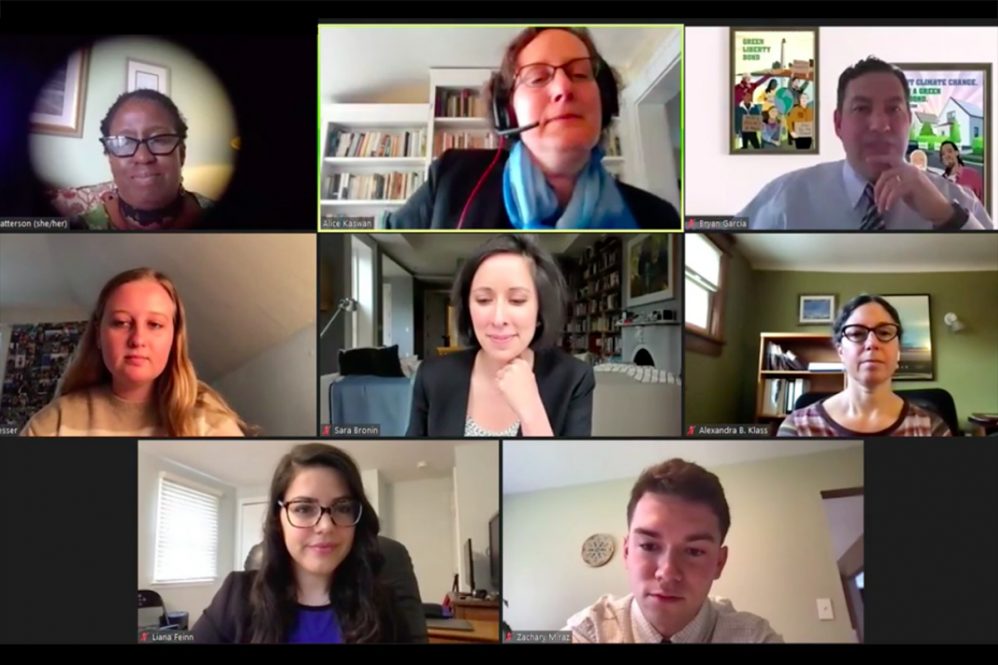The rapid acceleration of climate change will soon force states to collaborate to combat it, Katie Dykes, commissioner of the Connecticut Department of Energy and Environmental Protection, told a large virtual audience at a UConn Law conference on April 16, 2021.
“We can no longer just put on our blinders and say we don’t care what’s happening outside of Connecticut,” Dykes said. “The recent winter storms and power grid failures in Texas illustrate that.”
The symposium, “Energy Justice: Prioritizing Equity in the Greener Grid,” was organized by the Center for Energy and Environmental Law at the UConn School of Law. It featured a conversation with Dykes, two expert panels and a keynote address from Uma Outka, associate dean for faculty and William R. Scott Law Professor at the University of Kansas School of Law.
Before Outka’s talk, which challenged attendees to think broadly about what justice and equity mean, U.S. Sen. Chris Murphy ’02 centered the day’s conversations by explaining his support for new federal climate initiatives proposed by the Biden Administration.
“Energy justice is an emerging and important area and I was delighted by the arc of our conference,” said Professor Joseph MacDougald, executive director of the Center for Energy and Environmental Law. “Our speakers brought us from concepts of energy justice through what it means for actual grids to what it means to transition to green energy fairly in Connecticut.”
The first panel featured Professor Monika Ehrman, faculty director of the Oil & Gas, Natural Resources, and Energy Center at the University of Oklahoma College of Law, with Joseph Danel, manager of electricity markets at the Union of Concerned Scientists. The panel, moderated by MacDougald, examined current energy accessibility disparities.
The second panel consisted of Jacqueline Patterson, director of the NAACP Environmental and Climate Justice Program; Bryan Garcia, president and CEO of the Connecticut Green Bank; Professor Alexandra Klass of the University of Minnesota School of Law; and Alice Kaswan, an associate dean at the University of San Francisco. UConn Law Professor Sara Bronin moderated.
Panelists discussed ways of transitioning to cleaner energy that prioritize vulnerable communities. Suggestions included intersectionality training and clearer equitability standards and regulation from the federal government.
Duncan Grimm ’21, one of the symposium’s student organizers, said he and a group of several other students met weekly over the course of many months to plan the event.
“The depth of the student involvement in planning and executing this event meant speakers were better prepared to deliver a great conference,” Grimm said. “Additionally, students were well-prepared to introduce speakers and ask questions, as they did throughout the event.”
Christa Calabretta ’23, who served as a student facilitator and asked several questions during the event, said the experience was a highlight of her year and deeply informative.
“The information shared in this conference has truly shifted my perspective on what it means to be an energy and environmental lawyer,” Calabretta said. “I love how it emphasized the importance of not overlooking equity in favor of urgency when it comes to energy policies.”



